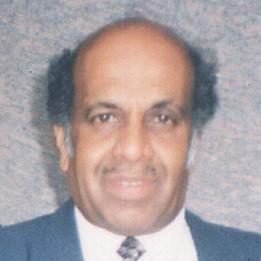
3 minute read
Minding your language
from 2012-10 Sydney (1)
by Indian Link
BY NOEL g DE SOUZA
presenter Leigh Sales’ probing questioning of Opposition Leader Tony Abbott on her program
Abc
7.30 so enraged an important Liberal strategist Grahame Morris, that in an intemperate moment, he called her a ‘cow’. The reaction was furious and Morris was rightly forced to apologise by Abbott.
Elsewhere, calling a female a ‘cow’ might have had a very different reaction. For example, before an open palm of the hand became the emblem of the Congress party in India, the symbol of the Indira-led Congress part was the cow and calf. That symbol had a wide appeal and an almost sacred connotation.


In a globalised world, diplomatic use of language is the norm for decent political discourse. The use of animal terms for humans is well known in common everyday language. For example, the Americans use the term ‘Holy cow!’ as a form of exclamation, along with the lesser used term ‘Holy mackerel!’.
In most languages, the word ‘swine’ is inappropriate when applied to any human. Thus ‘You swine!’ might be unacceptable; but ‘You lucky swine!’ amongst friends in Britain and Australia is more like a pat on the back. Between the Mediterranean and Southeast Asia, it is best to keep away from the word.
In the Middle East, the word ‘dog’ is as equally unacceptable as is ‘swine’. In contrast, in England we hear about an important person as being a ‘top dog’; however, politicians often love to describe themselves as ‘underdogs’ when they need to get the electorate’s sympathy vote. Cats seemed to have had a better rating than dogs. Thus well-paid bureaucrats and corporate entities are often referred to as ‘fat-cats’. Another term used derisively when applied to humans is the word ‘donkey’. Donkeys have been considered stupid and useless. In India they are used as beasts of burden by washermen. The value of donkeys during war is emphasised through the story of Simpson’s Donkey which helped in rescuing wounded soldiers during a battle in World War I. A coin commemorates the event. In NSW there is a donkey rescue centre where stray or abandoned donkeys are cared for and nursed back to health. Visitors including school children, go to the centre.
Germaine Greer, the well-known feminist matriarch who wrote the much-lauded but controversial The Female Eunuch, has had no hesitation in lashing out at other feminine celebrities. During an ABC television debate she said that Julia Gillard should accept the fact that she is ‘big arsed’. Some years earlier she had attacked Michelle Obama’s choice of clothes saying that they were a type of apron and a ‘travesty’.
It was Indian-born Rudyard Kipling, creator of literary images of the times of the Raj, who said words are ‘the most powerful drug used by mankind’. For contemporary writer Paulo Coelho the word is one of the most destructive and cowardly weapons ever invented. We see their use in political combat.
Politicians can be admonished for what they say, but radio shock-jocks have often made it their stock-in-trade to use shocking and denigrating language. There seems to be little to control their verbose output. New internet media which has arisen in the current environment is Facebook and Twitter. Even school kids are using this device one against another, sometimes with very serious consequences. Some schools have done well to altogether ban their students from having such accounts and using these so-called ‘social’ media.
People react to how a word is spoken and pronounced. Good voices create good speech which can propel an audience in one’s favour. A few individuals have voices which have hardly changed over the years. India’s most famous songstress Lata Mangeshkar who is now 82, has over 10,000 songs (recognised by Guinness records) to her credit, and she still sings to crowded auditoriums in a voice that is indistinguishable from that of her youth.
The American child star Shirley Temple (84) whose ability to absorb and deliver dialogue and songs to an enchanted audience, preserves her youthful speech in what would otherwise be called old age. That speech has obviously helped in her political career. She has been a US representative to the UN, ambassador to Ghana and the Czech Republic and Chief of Protocol of the USA.
President Obama, in an effort to neutralise his rival Mitt Romney’s use of his wife Ann to bring a homely touch to his image, had his wife Michelle speak at the launch of his campaign. Despite the feminist movement and the placing of women in important positions, the place of the woman in the household has still currency in the political scene.
However, the war of words on the world stage and at the micro level such as a school still needs moderation.










